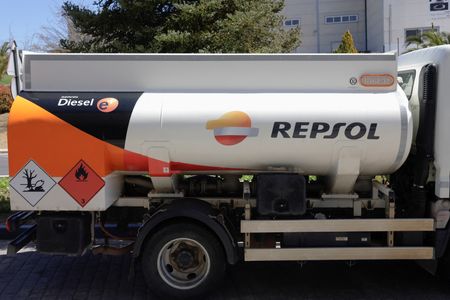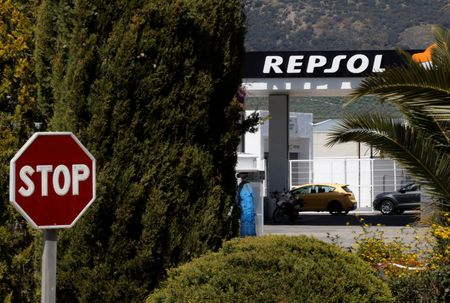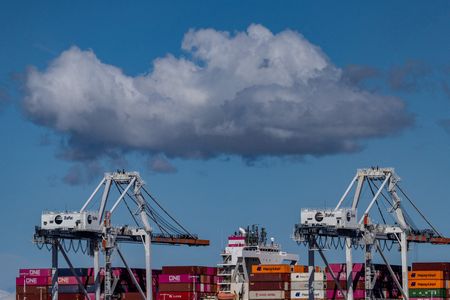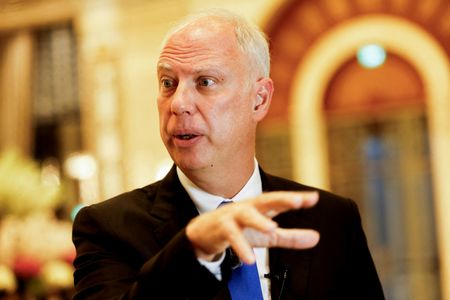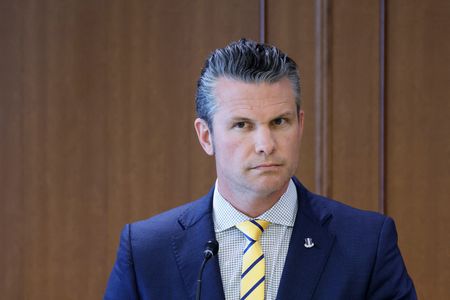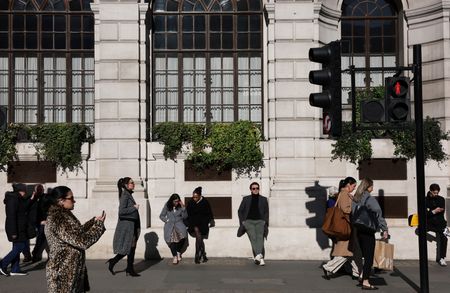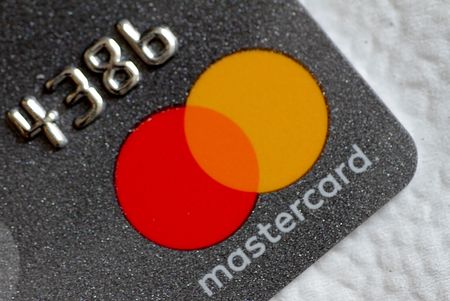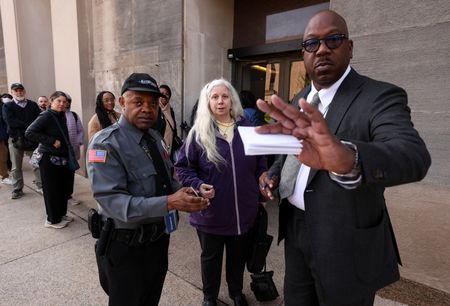MADRID (Reuters) -Spain’s Repsol is in an “open and fluid dialogue” with U.S. authorities as it explores ways to keep operating in Venezuela after Washington moved to revoke its license to export oil from the country, CEO Josu Jon Imaz said on Monday.
Like other foreign firms operating in Venezuela, Repsol has been notified that its permit to export Venezuelan oil would be revoked, a company spokesperson said earlier on Monday, prompting Spain’s Foreign Minister Jose Manuel Albares to promise that the government would defend Repsol’s interests.
“We are in direct contact with the American authorities and we are going to see if we are able to find mechanisms that may allow us to continue with our activity in this country,” Imaz told the “Wake Up Spain” business event in Madrid.
The company always abides by Venezuelan and international law, including sanction regimes, he added.
Under the permit issued by the previous U.S. administration, Repsol agreed to receive oil from PDVSA as payment for debt. It increased import volumes last year.
U.S. President Donald Trump’s administration told Repsol it had until May 27 to wind down its operations in the Southern American country, the spokesperson added.
Oil and gas operations in Venezuela were normal on Monday, vice president and oil minister Delcy Rodriguez said in a social media post.
“Those transnational companies whose license was revoked by the U.S. government at the request of failed Venezuelan extremists are welcome to continue to participate in production in a win-win scheme of contracts with national industry,” she said.
Oil companies Maurel et Prom from France and Eni from Italy have said during the weekend they had been notified by the U.S. government that their respective authorisations to operate in Venezuela were revoked.
Venezuelan President Nicolas Maduro and his government have always rejected sanctions by the United States and others, saying they are illegitimate measures that amount to an “economic war” designed to cripple the country. Maduro and his allies have cheered what they say is the country’s resilience despite the measures, though they have historically blamed some economic hardships and shortages on sanctions.
Last week, Trump issued an executive order declaring that any country buying oil or gas from Venezuela will pay a 25% tariff on trades with the United States.
The previous administration had authorised exceptions to U.S. sanctions on Venezuela to allow individual companies to source Venezuelan oil to feed refineries from Spain to India.
The companies that had received licenses and comfort letters from Washington also include India’s Reliance Industries and U.S. Global Oil Terminals.
(Reporting by Pietro Lombardi; Editing by Inti Landauro, Andrei Khalip and Andrea Ricci)

